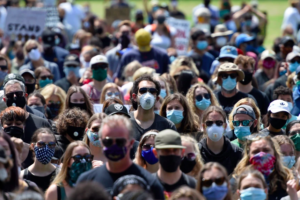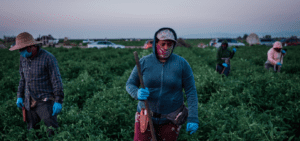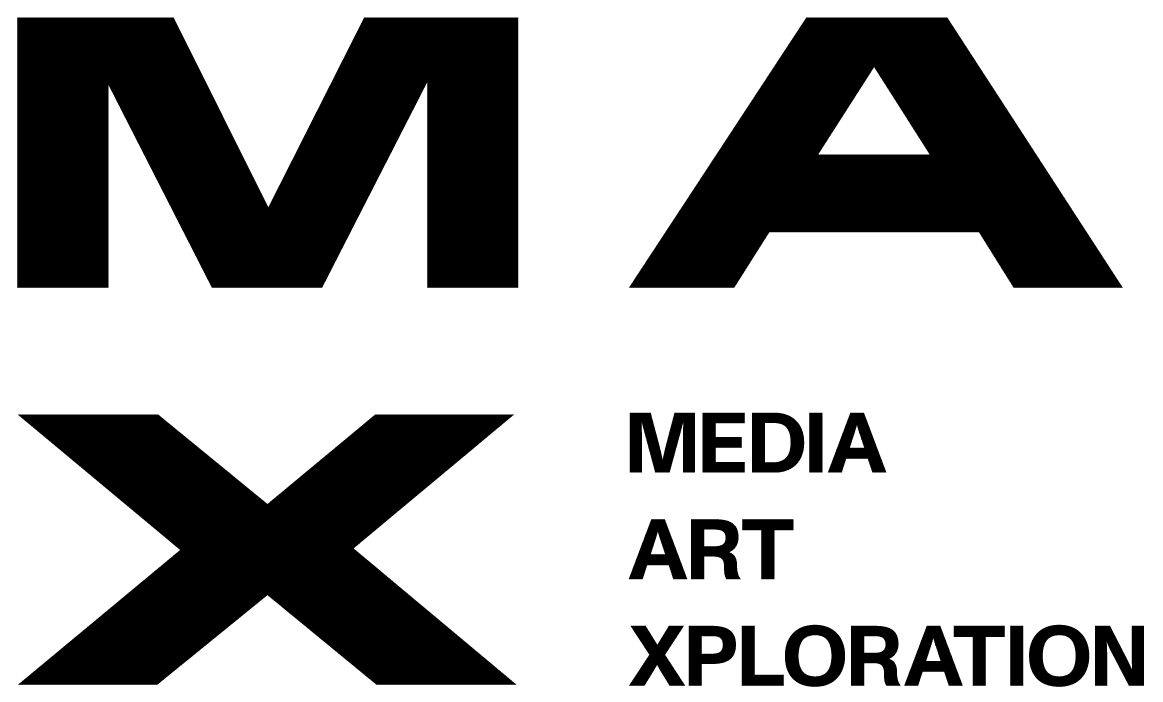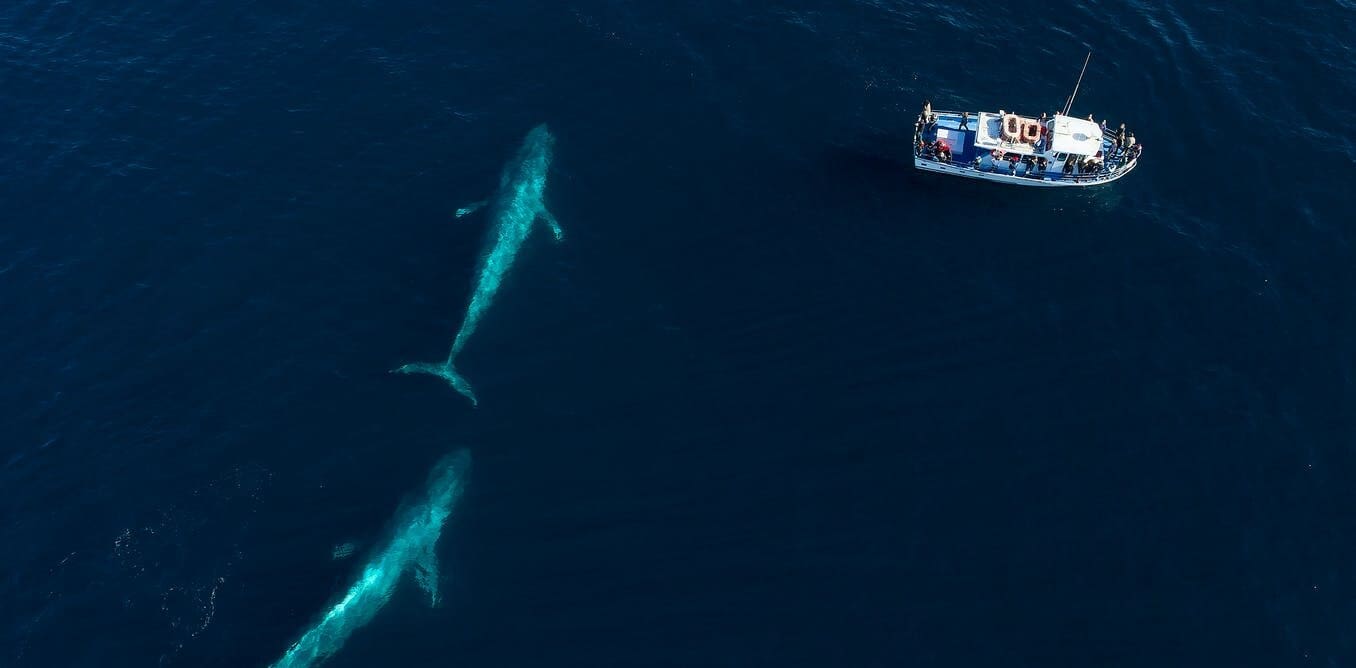April 20, 2020, oil companies faced a harsh reality: sellers of crude would have to pay buyers $40 or more to take a barrel of what used to be regarded as “liquid gold” off their hands. The paralysis of the global pandemic had brought demand so far down that a mini crisis ensued on the high seas. Nobody needed the oil and the sellers had nowhere to unload the tankers full of newly minted crude. It had been excavated as liquid to be burned as fuel and released into the atmosphere as carbon.

Barrels sat unclaimed on tankers across the globe. (David Sanger Photography)
As oil supplies piled up instead of ‘disappearing’ as carbon, there was no space for the liquid gold. Suppliers had to find a place where the oil could wait out the pandemic – a vat where it could “shelter in place.” Delivery price of West Texas Intermediate Crude – a key benchmark of the health of the American energy sector — slipped into being worth less than zero that day. Oil was trading negatively for the first time since crude became a commodity.
Suppliers were forced to pay ports to take oil off their ships.
I wondered what else I would pay to get rid of during the pandemic that used to be a of great value. What I do in the universe is gather people together — family, friends, artists, scientists, audiences. Sheltering in place was relatively new, but I was feeling the isolation, the dread of an unseen enemy lurking in every corner, and the complete disruption of my habitat and habits. Quarantine robbed me of my raison d’etre and I started to wish I had less time on my hands. Usually I pay people or services to give myself time.
Suddenly time was not a precious commodity. I wondered what would I pay to time travel forward to late 2020, when the pandemic should have subsided. Or, Spring, 2021 when the predictions were a vaccine would certainly be in place? Or 2022 when COVID would probably be a distant memory? With no such opportunity to pay to subtract time from the calendar – to trade negatively on my time on earth – I realized I had to bide my time and stay put. Just as well no one would make a trade with me back in April as I would have opted for fall, 2020 naïve about how events would unfold, the virus would persist, the US get stranded in the first wave and sizable gatherings still forbidden.

Jae C. Hong
September 2020, COVID continues its rounds, protocols remain in place, time grinds on and we continue to lose ground. It turns out, however, there are some winners – if only temporarily. The slowing down of human enterprise does give a temporary but expanded breathing space to animals and ecosystems. Comparing relative pollutant levels in a city pre-COVID to that same city under COVID lockdown reveals the dramatic atmospheric changes brought on by the human hunkering down. Our taking a time-out to shelter in place gave a deep breath of fresh air to planet earth.
The havoc that the carbon emissions of our lifestyles and enterprises have visited upon habitats from the Himalaya’s to the ocean depths has made Earth much less hospitable to a countless number of creatures. As Elizabeth Boakes tells us on phys.org, “Extinction is a natural process but it is happening at 1,000 times the normal speed.” Our habits – particularly our reliance on fossil fuels and petroleum-based plastics — have accelerated the rate of extinction exponentially. We have been trading the timespan of other life forms for the convenience of fossil fuels and the comforts their conversion to carbon brings to us and our human-made habitats.
The IUCN red list includes over 16,000 species threatened with extinction. To list only a few of the currently endangered species —the Sierra Nevada blue butterfly, the Hawaiian honeycreeper, the blue whale and most recently the right whale who perhaps has the shortest runway of all with only 400 of those creatures remaining.

Jose Carlos Fajardo/Bay Area News Group
From the spasms of the whale as the ocean heats up to the deadly fever of the honeycreeper’s avian malaria brought on by increased mosquito populations, these creatures suffer individually as their species’ populations decrease precipitously. Does the discomfort the individuals of these species feel like the dread we feel in the face of wearing a mask indefinitely or is it closer to the suffocating cough of COVID?
We can barely socialize, travel, or freely exchange goods or ideas in person. We keep a distance of 6’ from those we are accustomed to hugging. Traumatized by the disruption and anxious about our future, has COVID-19’s upheaval of our habitat, radically transforming human activities, both local and global, made us feel somewhat like an endangered species must feel? Could we learn from this disruption that we are a kind of virus – a COVID with super powers —to these endangered species? Or could we come out understanding that we are at once the virus that kills without discretion and the endangered species that will suffer?
Oil is no longer selling for less than zero as producers have adapted to the new conditions, implemented tried and true cartel practices to bring the price of oil back into the positive. However, as COVID restrictions persist, the oil companies can’t create the demand that elevated oil to the status of “liquid gold.” In fact, oil is so diminished in value, the Exxon Corporation has been exiled from the Dow Jones because it is no longer seen as a major player in the economy. So, post pandemic will we return to the same reckless dependence on fossil fuels ignoring the devastating effect of our carbon footprint and restore Exxon to its prior prominence? Or, when COVID is banished will we stop trading negatively on behalf of other species’ lifespans?

Max Whittaker / Los Angeles Times
Unlike defeating COVID, the technology is there to disrupt the destruction caused by carbon emissions and implement sustainable energy, but we have to have the will and the wisdom to use it. Can that wisdom be the silver lining of living under a pandemic for the past 9 months and the foreseeable future? Time will tell.
by Kay Matschullat

